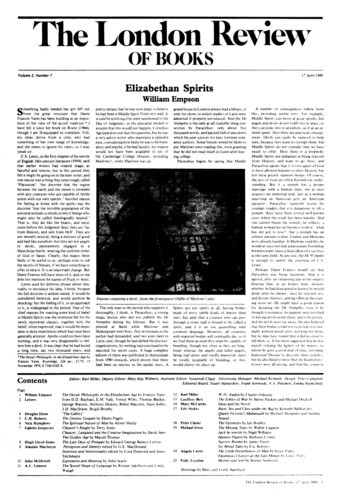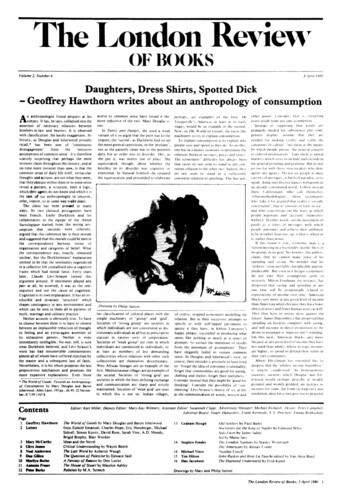Ideas and the Novel: Dostoevsky’s ‘The Possessed’
Mary McCarthy, 17 April 1980
You could say that Crime and Punishment was a novel about the difference between theory and practice. Well, if you were a philistine, you could. The Possessed, too, deals with ideas and their execution. It does so on a wider scale, yet without any such reassuring conclusion. In the earlier book, there was just one theory, Raskolnikov’s, which he fails to prove, owing to his own half-heartedness in applying it – an indication of a possible weakness in the theory itself. In The Possessed, there is a whole band of theorists, each possessed by a doctrinaire idea, and a whole innocent Russian town to practise on. But in the outcome there is no divergence between idea and reality: in most cases theory and practice have fused, which is what makes the novel so frightening. The exception is the superannuated old liberal, Stepan Trofimovich, an idealist in his writings and something more abject in his daily conduct, who naturally holds no terrors for his fellow citizens.


